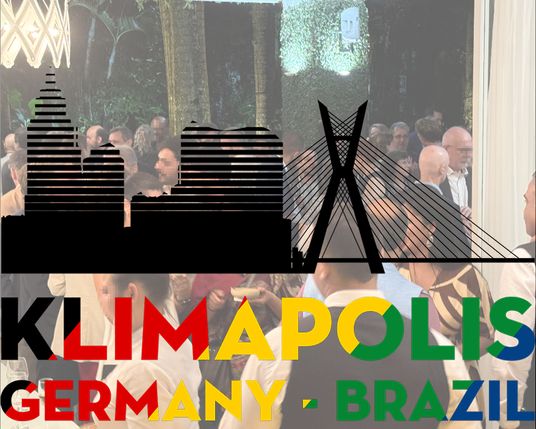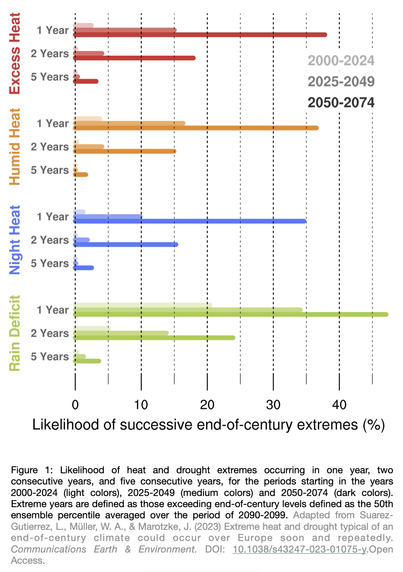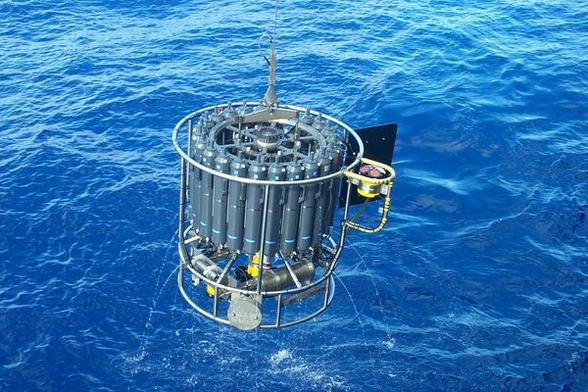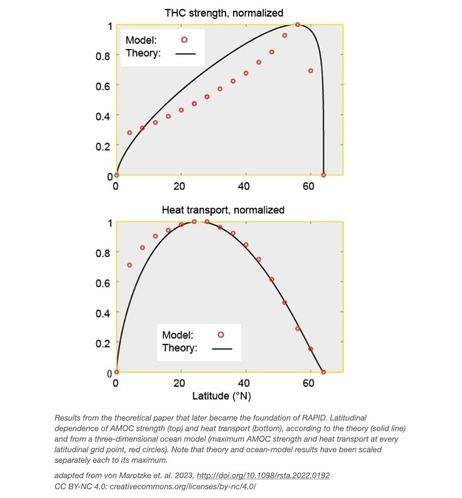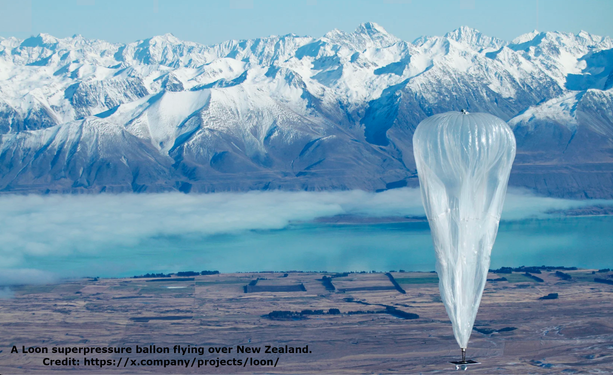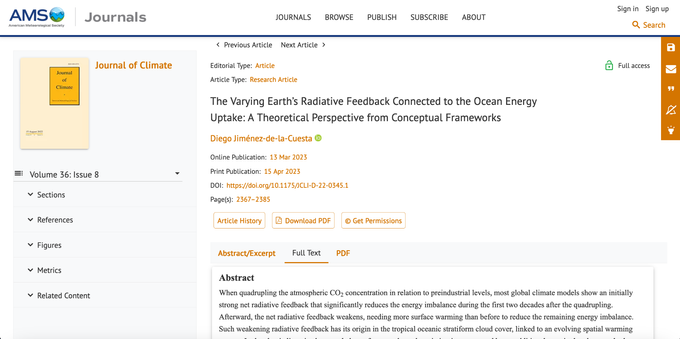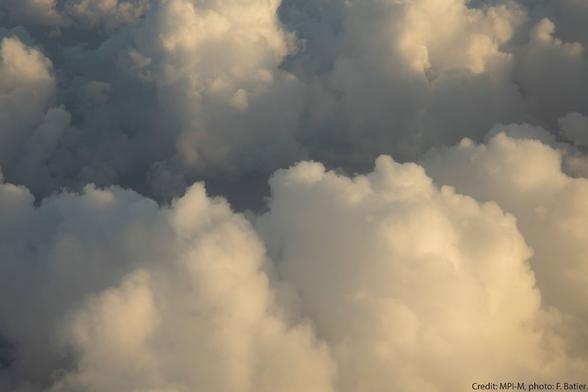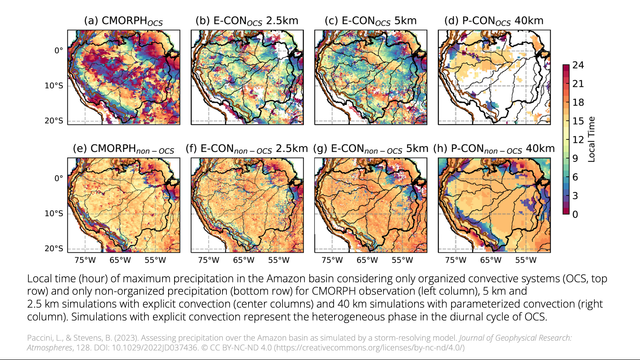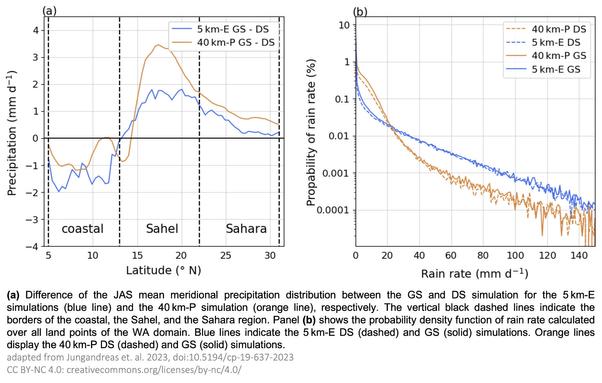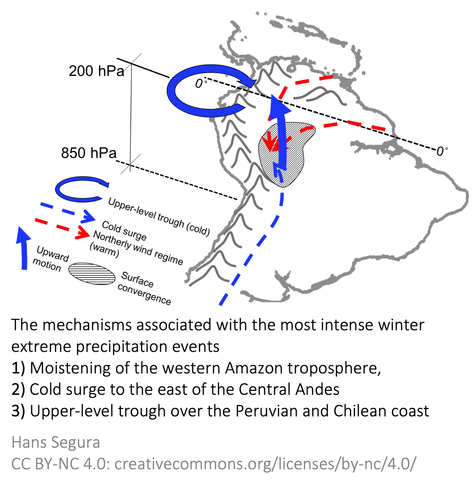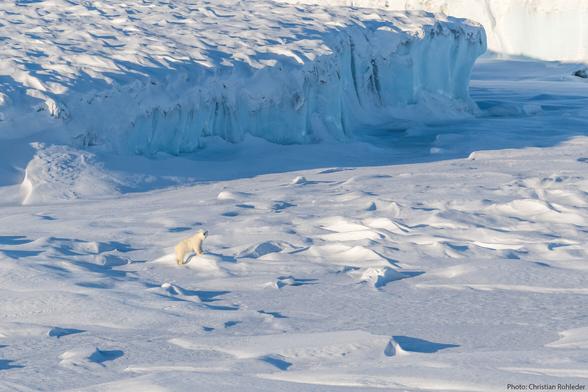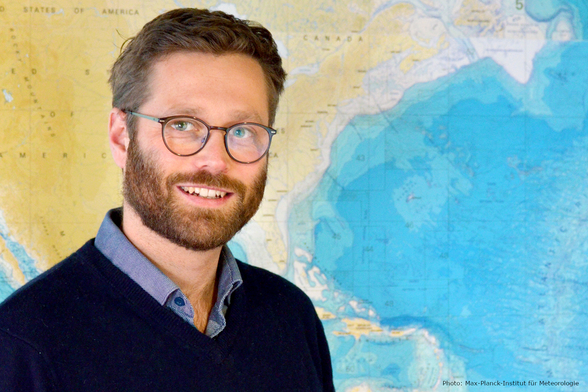⛵ Klimaforschung per Segelboot? Warum nicht! Seine Teilnahme an dem großen Rennen Vendée Globe stellt Weltumsegler Boris Herrmann auch in den Dienst der Wissenschaft. Er sammelt Beobachtungsdaten, unter anderem zum CO2-Gehalt der Meeresoberfläche. #MPIM_Scientist Jacqueline Behnke prüft, wie sich solche Daten auf die Schätzung des CO2-Flusses zwischen #Atmosphäre 🌤️ und #Ozean 🌊 auswirken. Sie kommt auch in diesem #ARD-Film zu Wort:
https://www.ardmediathek.de/video/boris-herrmann-segeln-am-limit/boris-herrmann-das-rennen/ndr/Y3JpZDovL3Nwb3J0c2NoYXUuZGUvZGE5ZjEwYTQtMjFkYS00ZDc0LThjMjYtNDY4N2ZiY2Q0YTdm
@geomar_de
#MPIM_Scientist
🇧🇷 🇩🇪 Our former director Guy Brasseur is currently in Sao Paulo where the project Klimapolis has completed its final workshop. 200 participants celebrated the conclusion of the project with a reception hosted by the German General Consul Martina Hackelberg.
Klimapolis contributes to developing environmentally resilient cities in Brazil. It is a 7 years project managed by #MPIM_scientist Diego Arruda & now continued by the Brazilian partners.
Building upon #Nobel laureate and #MPIM founding director Klaus Hasselmann's work, renowned researchers are meeting at our institute in order to discuss current and future work on stochasticity in #climate science. 🌍 The "Hasselmann legacy" symposium was organized by #MPIM_scientist Lin Lin, #Postdoc under the Nobel Laureate Fellowship of Klaus Hasselmann, and Jin-Song von Storch, Deputy Director of the Climate Variability department. ➡️ https://mpimet.mpg.de/en/communication/detail-view-news-homepage?tx_news_pi1%5Baction%5D=detail&tx_news_pi1%5Bcontroller%5D=News&tx_news_pi1%5Bnews%5D=1160&cHash=46473557ad0776a5b4b2d4cefd20f6fc
Interested to go where #science 👩🎓& #art 🎨 meet? Check out the "Portraits of Climate" of the Cluster of Excellence #CLICCS, opening *tomorrow* Nov 7 at Universitätsmuseum #Hamburg. #MPIM_scientist David Nielsen contributed to this unique exhibition together w/ artist Jenni Schurr: His research on Arctic #permafrost erosion can be experienced as an audiovisual installation. This & other fantastic artwork is presented until April 2025!
➡️ https://www.cliccs.uni-hamburg.de/de/press/dialogue/art-science.html
Image credit: Jenni Schurr
The #volcanic eruptions 🌋 of #Hunga 2022 attracted a lot of attention as they hurled large amounts of water vapor💧into great altitudes of the #atmosphere, considerably increasing stratospheric moisture. However, there is a second, indirect pathway, leading to increased moisture fluxes into the stratosphere after volcanic eruptions. #MPIM_scientist Clarissa Kroll find that for #Pinatubo-magnitude eruptions both pathways can be comparable.
👉https://www.nature.com/articles/s43247-024-01651-w
Picture Credit: NASA/J. Stevens
Möchtet Ihr Chinas 🇨🇳 vielfältige Geografie, Politik, Gesellschaft und Kultur entdecken? Mit anschaulichen Illustrationen und Einblicken von 50 Experten könnt Ihr Euch mit Themen von der Geopolitik bis zum Klimawandel beschäftigen. #MPIM_Scientist Dr. Chao Li verfasste das Kapitel über Chinas Klimadynamik und die Auswirkungen extremer Wetterereignisse auf Wirtschaft und Gesellschaft.
Viel Spaß beim Lesen: https://link.springer.com/chapter/10.1007/978-3-662-66560-2_4
🚨New publication 🚨
Our former #MPIM_Scientist Laura Suarez and colleagues from #MPIM found that extreme heat and drought typical of the end of the century could occur earlier and repeatedly over Europe.
For more information, check out the article on our webpage and the paper:
👉 https://mpimet.mpg.de/en/communication/news/end-of-century-levels-of-extreme-heat-and-drought-are-approaching-europe-swiftly
👉 https://www.nature.com/articles/s43247-023-01075-y
RAPID records 20 years of AMOC observations!
But how the Atlantic got its observation system is a mystery to many 🧐. In his latest paper, #MPIM_scientist Jochem Marotzke narrates the history and reveals the ideas that led to the foundation of the observing system. He explains the achievements of RAPID so far and shares his proposal for the future to understand AMOC variability.
Check out this article on the interesting paper: https://mpimet.mpg.de/en/communication/news/wie-die-atlantische-umwaelzzirkulation-zu-ihrem-beobachtungssystem-kam
Can we use Global Storm Resolving Models (GSRMs) to simulate gravity waves signatures? Yes we can say #MPIM_scientist Laura Köhler and her coauthors!
They compared GSRMs with atmospheric measurements from the #Loon superpressure balloons and found the model physics behaves similarly to the observations. It means we can even use GSRMs to generate data for #MachineLearning gravity waves!
Read about their carefully considered analysis here: https://doi.org/10.1029/2023JD038549
In his new publication, former #MPIM_Scientist D. Jiménez-de-la-Cuesta (@elessartelkont) uses a basic conceptual picture of Earth’s energy balance as well as existing knowledge on the spatial warming pattern and its effect on radiative feedbacks to show that the pattern is explained by changes in the ocean’s energy distribution due to changes in #ocean circulation. Read more: https://doi.org/10.1175/JCLI-D-22-0345.1
Eureka it is!
Using the observations from the #EUREC4A field campaign, #MPIM_Scientist Geet George and #UHH research scientist Raphaela Vogel with #LMD in Paris show that the subtropical #clouds are not diminished by warming. Their findings negate the predictions of some #climate models as the cloudiness is supported by the mesoscale motions, which the models don't incorporate.
More details on this exciting campaign: https://mpimet.mpg.de/en/communication/detail-view-focus
In their new publication, former #MPIM_Scientist L. Paccini (@laurapaccini) and co-author B. Stevens investigate whether an explicit representation of #convection leads to an improved representation of #precipitation in the #Amazon basin and whether the improvement is related to the representation of organized systems. Read the paper here: https://doi.org/10.1029/2022JD037436
In their latest paper in Climate of the Past, #MPIM_Scientist Leonore Jungandreas et al. reveal how explicitly accounting for convection alters precipitation-soil hydrology interaction in the African humid period. It highlights significant changes in the hydrological cycle and emphasizes the importance of land processes in climate modeling. Read more here: https://cp.copernicus.org/articles/19/637/2023/
#ClimateScience #Holocene #Hydrology #AfricanClimate #Convection
Before joining us in Hamburg #MPIM_Scientist Hans Segura @hans_msc90 did research on precipitation events 🌧️ over the South American Altiplano. He found that synoptic weather conditions can trigger heavy #precipitation events which damage socioeconomic activities in the dry season.
Read more about this exciting topic here: https://bit.ly/3YSWXLW,
and learn more about Hans on his institute website: https://bit.ly/3YZB4dJ
In her master’s, #MPIM_Scientist Malena Andernach investigated the impact of #Arctic clouds on the surface energy budget and on surface melting in northeast #Greenland during an intense summer melt period in 2019 by simulating #cloud properties with a high-resolution model configuration.
➡️ Read more: https://rmets.onlinelibrary.wiley.com/doi/10.1002/qj.4374
📸 Photo by @icrohl
As of this month, former #MPIM_Scientist Dr. Florian Schütte holds a junior professorship at @geomar_en where he will focus on physical #observations of small-scale #ocean structures. We warmly congratulate and wish him all success!
Read more about his work here: https://mpimet.mpg.de/en/communication/news/single-news/page?tx_news_pi1%5Bnews%5D=1652&cHash=19db558e008f7bd82d5e1a4b0bc8e87c
